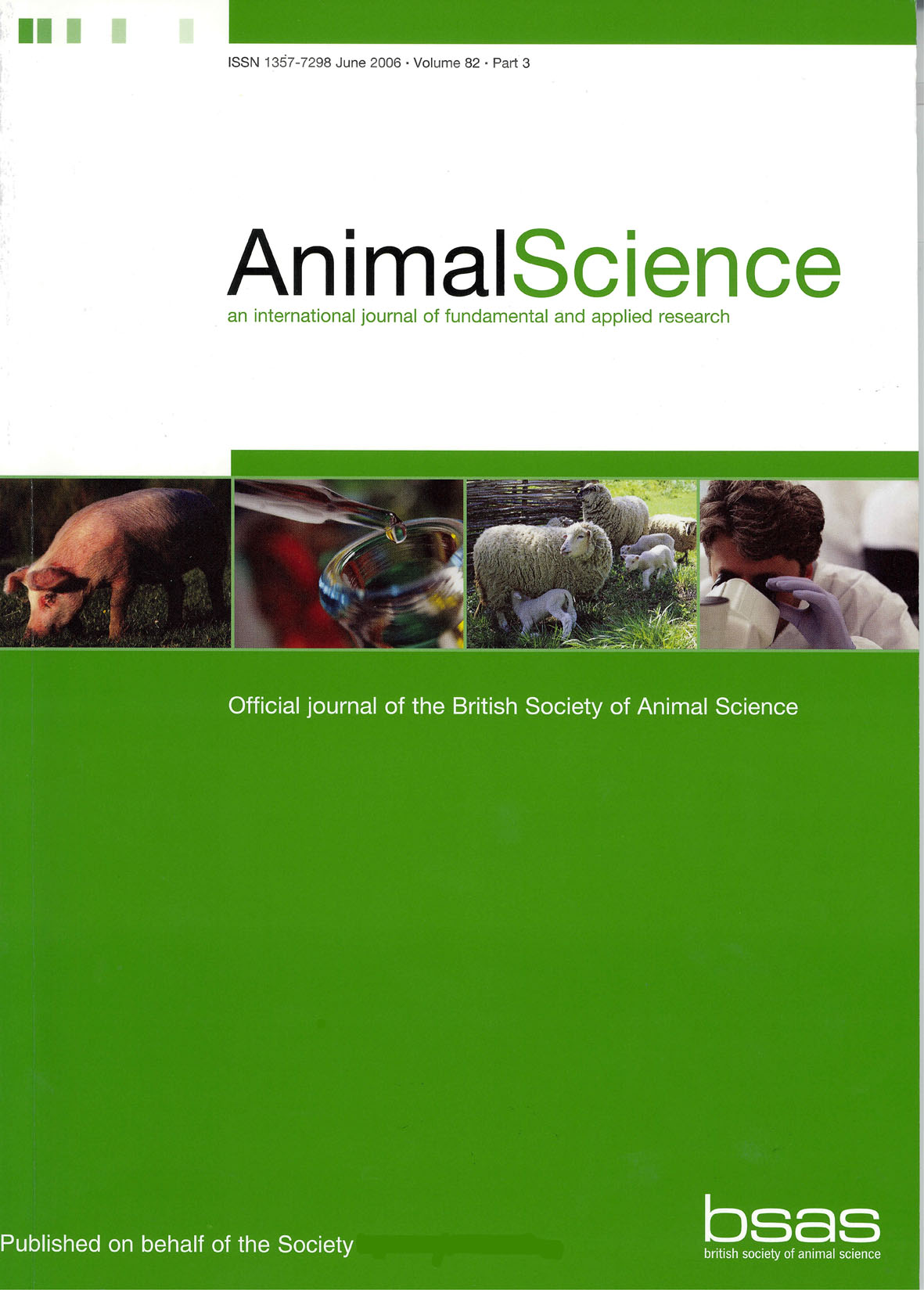Article contents
Genetic variation in reaction time to halothane exposure
Published online by Cambridge University Press: 02 September 2010
Abstract
The inheritance of the time taken to react to halothane anaesthesia was examined as a possible quantitative measure of penetrance, which might allow the advantage of the halothane gene in lean content to be separated from its disadvantage of stress susceptibility. Restricted maximum-likelihood analyses were conducted on a total of 2207 pigs from 118 sire families in British Landrace and Pietrain-Hampshire lines selected for a high frequency of positive halothane reaction over 6 years. Reaction time averaged 94 s with a CV of 0·53, and was significantly influenced by line, season and live weight, but not sex. Estimated heritabilities averaged 0·07 (s.e. 0·06) and 0·16 (s.e. 0·12) in the two lines respectively, giving a pooled estimate of 0·09 (s.e. 0·05). Due to the high CV, family selection with a heritability of around 0-1 could be expected to give a rapid genetic change in reaction time. It is therefore concluded that selection for slower reaction to halothane could provide a means for reducing the incidence of stress susceptibility while retaining the advantage of the gene in lean content. However, further evidence is required on the correlation of reaction time with stress susceptibility and lean content.
Information
- Type
- Research Article
- Information
- Copyright
- Copyright © British Society of Animal Science 1989
References
REFERENCES
- 1
- Cited by

